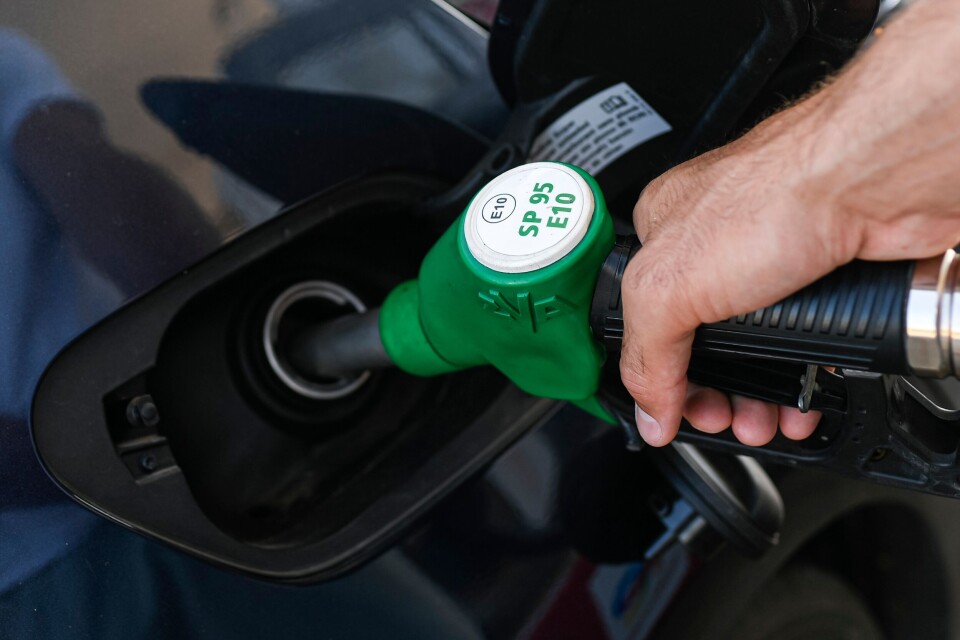-
High demand for relaunch of Ryanair’s new London - France route
Many UK residents own second homes in region
-
Visa delivery policy review ordered by French PM
'France welcomed more than half a million additional immigrants in 2024 - an unprecedented level', said François Bayrou
-
Which fruits, vegetables and fish are in season in France this April?
Strawberry season begins, compensating for end of winter vegetables
‘Worker fuel allowance’ to benefit half of French households, PM says
As existing fuel rebates are set to end this year, the prime minister has revealed more details on the ‘more targeted’ measures that may replace them

People who drive many kilometres for work may benefit from a ‘worker fuel allowance’ which will help up to half of all households, once the current fuel rebate comes to an end at the end of the year, Prime Minister Élisabeth Borne has said.
Fuel prices have been on the agenda more than ever this week, as prices rose above the symbolic threshold of €2 per litre, because of the reduction of the government’s 30-cent-per-litre discount to 10 cents per litre.
Once this discount – along with the 10-cent-per-litre reduction also being offered by TotalEnergies – comes to an end for good from January 1, the price is expected to soar even higher.
However, the government has been alluding to several new measures that may replace the rebates, which first entered into use in April this year.
Read more: French fuel discount to reduce, more about replacement aid revealed
The fuel discount started out at 15 cents per litre in April, before rising to 18. It then increased to 30 cents, and fuel company TotalEnergies introduced a 20-cent rebate in its motorway stations too. This was later extended to all of the company’s petrol stations in the country.
This week, the government rebate dropped from 30 cents to 10, as TotalEnergies’ discount also dropped to 10 cents. This is set to last until the end of the year.
‘More targeted measures’
In an interview with Les Echos about France’s investment plan by 2030, Ms Borne referred to new fuel measures that she said would be “more targeted”.
She said: “This ‘worker fuel allowance’ will benefit households in the lowest five income brackets (déciles de revenu), or half of all households.
“They will benefit from a payment from the beginning of the year. We are still working on the planned scale, with the intention of significantly helping those who make a long journey to work."
Income décile brackets relate to people's 'standard of living', a figure based on a household's disposable income after tax and state benefits are taken into account, divided by the number of people in the household.
Each bracket represents 10% of the population, so the first 10% of people have an average 'standard of living' equivalent to €8,710, another 10% has an average of €13,310, and so on.
In 2019 – the date of the latest available data from national statistics institute Insee – France’s income brackets were as follows:
- 1st bracket: €8,710
- 2nd bracket: €13,310
- 3rd: €16,120
- 4th: €18,610
- 5th: €20,850
- 6th: €23,250
- 7th: €25,970
- 8th: €29,560
- 9th: €35,310
- 10th: €60,170
These figures may have changed slightly since then, but they give an idea of who may benefit from the more targeted fuel cost support.
Gas prices and other economic proposals
The prime minister also said that a cap on European-wide gas prices was still on the table, but she regretted how slow progress has been on the issue.
However, she said: “Many issues have moved forward [in the meantime], such as group gas purchases at European level…We are using all the room for manoeuvre that we have.
“We will release more details about our measures on Friday (November 18), to make them more readable and effective. We are speaking with businesses as much as possible, to ensure that these measures respond to their needs too.”
When asked about how businesses will cope with rising energy bills, and the risk that could be posed to industry, she sought to play down the problem.
She said: “Right now, the level of business failure is lower than it was in 2019, even though companies are under a lot of pressure. We are remaining alert, but the most recent job market signs appear positive.”
Ms Borne also said that she was confident that France could avoid a recession in 2023, although the wider geopolitical landscape may yet change, she added.
Related articles
France promises ‘more targeted’ aid to help with rising fuel costs
France set to increase fuel refund from 18 to 30 cents in September
France may extend 18-cent-a-litre fuel discount until end of 202
























